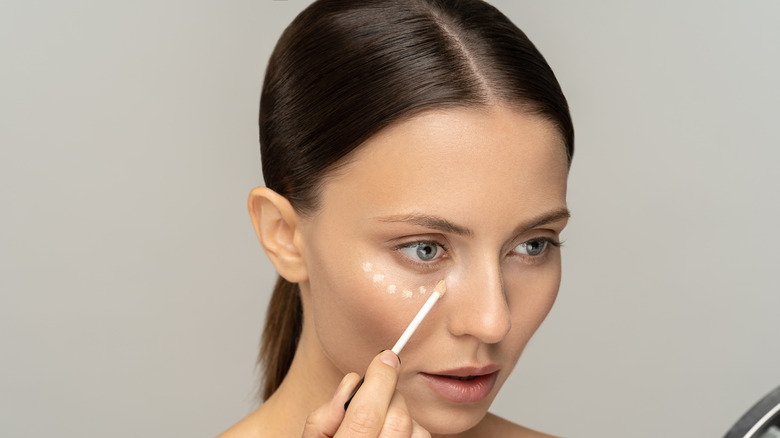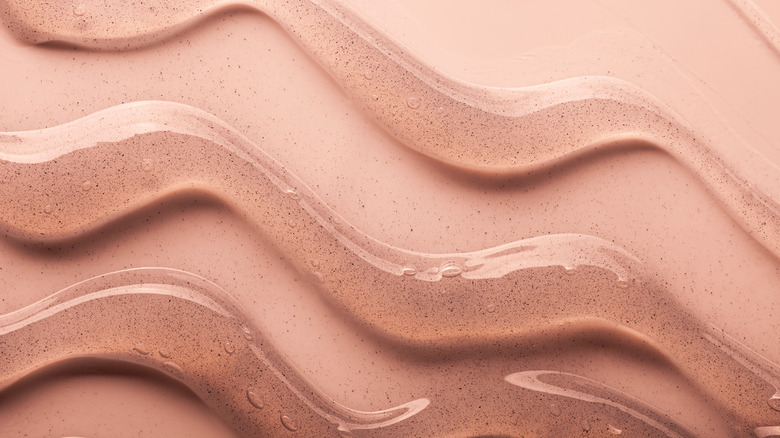What Makeup Primer Really Does To Your Face
Unless someone walked you through all the intricacies of makeup when you first started using it, understanding all of the products can be overwhelming. Creams, powders, sprays, tints, and stains fill the aisles at stores, each one seemingly with its own purpose that overlaps, at least a little, with the purpose of a dozen other products. With products like foundation and primer, the names only add to the confusion. Both products are supposed to be the base on which makeup is applied, and knowing which one to use first can be tricky.
Celebrity makeup artist Jamie Greenberg recently dished on what exactly face primer is (via Martha Stewart). Greenberg explained that primer goes on before anything else and prepares the skin foundation for everything else that comes after it. In many instances, face primer is likened to paint primer, the base coat that goes underneath the color coat to ensure the paint sticks evenly to the surface. Once applied to a primed face, foundation will look more even and adhere more effectively to the face. It's a benefit that all comes down to the way makeup primer affects the skin of the face.
Primers reduce signs of aging
Although there are many primers on the market, there are a few traits they all share. One, as explained by WebMD, is that primers reduce the signs of aging as well as large pores, general wrinkles, and small scars. It does this by filling in pores and wrinkles with small molecules, smoothing out the skin, and providing a more balanced surface for your foundation. They also affect the way light reflects off of the skin, which is what most brands mean when they say their product "brightens" it.
Where primers differ is on what type of skin they work best. Some can help those with oily skin by limiting how much the oil affects the makeup. Others can add moisture to dry skin. HuffPost warns, however, that few primers can actually do both. Other primers may focus more on toning down redness on a person's face.
Some makeup artists, like Tim McKay out of New York City, aren't sure primers are necessary. He told HuffPost that a good moisturizer is often enough for his clients. But Lauren Goodsitt, a global beauty analyst, also explained that the age of social media has increased the product's use. More people want to have smooth, flawless skin both on and offline, and they feel primer's filling effect helps achieve this look. Ultimately, it is down to personal choice based on each person's style and skin.


